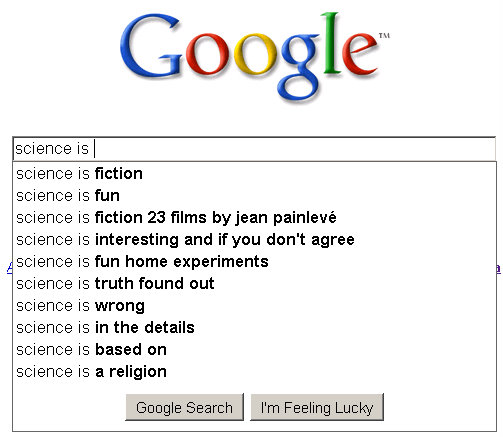I resist naturalistic explanations of my belief in God.
Atheist still use philosophical arguments, but it seems they are more a tool for unsettling Christians rather than the lifeblood of atheism. What seems to give much of modern atheism its strength is that in scientific naturalism it has found a way of explaining the world that doesnʼt need God. The philosophical argument still has its place of atheism, but it is less urgent and less pressing. The best argument against understanding the world in a theistic way is to provide an elegant, attractive, powerful mode of explanation that has no need for God.
The scientific naturalist mode of explaining the world is very powerful. It is indeed an impressive and elegant human achievement to have come up with this naturalist explanation of the world.
And yet I hold out on this very powerful way of understanding the world.
Why maintain a belief in God, when there is a very reasonable explanation of the world that doesnʼt require God? Indeed why am I not an atheist?
A couple of reasons:
Firstly, I maintain a difference between the conclusions reached by science, and the
assertions made by naturalism.
Science is a methodology. It takes as its starting point observation – physical evidence of
one sort of another is the means by which science discovers physical causes.
You can do lots with the methodology of science. Itʼs very powerful! But one thing you cannot do with science is prove that physical causes is all there is. You assert a conclusion if it has already been woven into your methodology at the start. Naturalism conscripts science — it says: Look at all the physical causes science has discovered, and science can explain how it all works, so there must be no other causes.
But the interpretation of your scientific conclusions depends not on your science, but on your philosophy.
I look at the conclusions of science, and I see in them a discovery of how God has done things in the world.
A naturalist looks at the conclusions of science and says, There is no need for God.
Both assertions are beyond the realm of science — there is no scientific experiment you can do that can prove one over against the other. Any observational data you find will just fit into a prior philosophical framework you have established for yourself.
This is why some of you are agnostic rather than atheist. You are committed to the scientific method, but have seen that it is not in itself sufficient to say anything about God, for or against. We decide on other basis. Science is like a big bucket — an enormous bucket — that you can plumb the depths of the ocean with. But just because youʼve got a full bucket doesnʼt mean youʼve got the whole ocean. Itʼs far too imperialistic to claim that!
But secondly, I reject naturalism as a philosophy because it is too powerful.
Iʼll need to explain what I mean!
Naturalism explains my convictions about God in evolutionary terms. This is one of the humorous back and forths that always happens when atheists and Christians engage: the Christian will present some sort of reason or fact why the atheist should believe in God, and the atheist will respond with: Well I can explain fact using just natural physical explanations. I point to the fine tuning of the universe as evidence that God made it; the naturalist says, that doesnʼt prove God, because, as unlikely as it is, sheer random forces just made it like this.
I point to the number of people around the world, and throughout history who believe in God, as evidence that we are hardwired for God — but the naturalist explains all such belief as a kind of by-product of our evolutionary development … religion has helped us survive, but that doesnʼt prove thereʼs a God. I point to the beauty and design in the world and all the things we value, as signs that we are built and created by and for someone greater than ourselves; but the naturalist will encourage me to be suspicious of my perceptions “The illusion of design is a trap that has caught us before” Dawkins writes.
Thereʼs a long list of things that evolutionary naturalism is powerful to destroy and tear down, and the harder atheists use it with entertaining and formidable skill.
But hereʼs my question: why stop with religion? If religion is the product of evolutionary
adaptation, then why not rationality? Why ought I to be suspicious of my perceptions of design, but not suspicious of my perceptions of whatʼs rational?
If evolutionary naturalism is true, then ʻrationalityʼ is not to be explained as some characteristic of our species that connects us with the real world — it is merely a characteristic of the species that helps us survive better in the real world. The power of reason depends on its objectivity — that it is really true and connects me to the world in a way that is true. But evolution is not interested in truth — itʼs just interested in survival. What we think about the world may be nothing more than a dream, an invention of our pragmatic minds.
Darwin himself realised this, and wrote to a friend:
“With me the horrid doubt always arises whether the convictions of manʼs mind, which has been developed from the mind of the lower animals, are of any value or at all trustworthy.”
Naturalism is a very powerful sword. Naturalism does away with God, to be sure. But in the process, it does away with everything. Nothing we know or perceive can be depended on as connecting us to the real world — anything our brains tell us are merely the product of evolutionary adaption. If physical forces really do explain everything, then they must truly be allowed to explain everything — even my own explanations. It is just a case of special pleading to ʻexemptʼ naturalism from its own razor.
Naturalism, and atheism, in terms of what it actually teaches, seems to me to be a counsel of despair. My love for my family, my concern for others, the reasons I get out of bed in the morning — all of them are illusions, and irredeemably so.
Now please donʼt misunderstand me: I donʼt mean that every atheist is living in despair!
Iʼm glad to say thatʼs not the case. But if the physical evolutionary causes are the only explanation for life you have, how can you assert the reality of meaning of any kind? Itʼs not enough to say that you do assert the existence of meaning and love and beauty! When I hear atheists do that, I just think they are talking as a semi-Christianised atheist, still spending some cultural credit hanging around from Christianity! Itʼs not enough to say evolutionary naturalism doesnʼt lead to meaningless for you — you have to show why it shouldnʼt?



